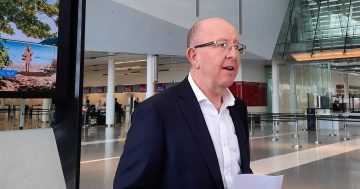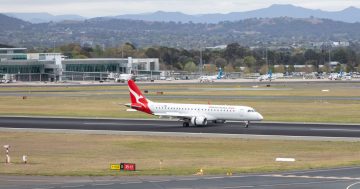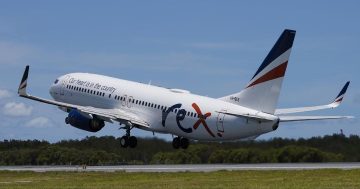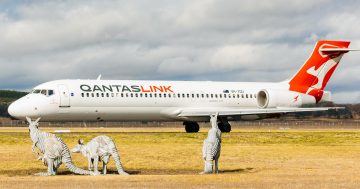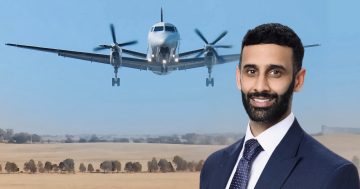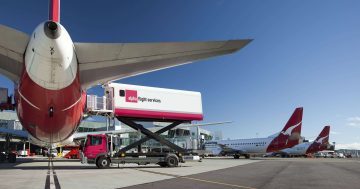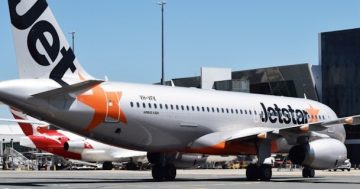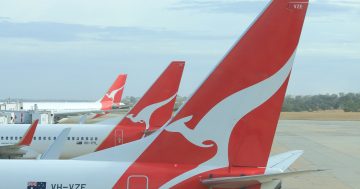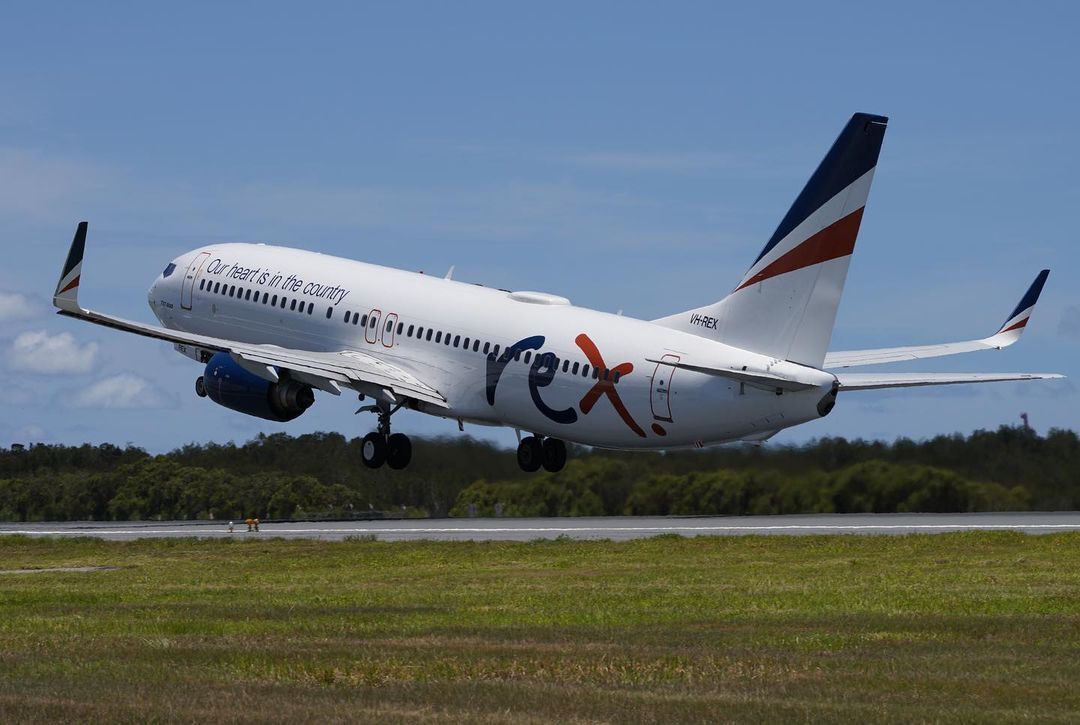
Rex can add real competition to the domestic airlines market, but it and others will need help. Photo: Rex.
There is again hope on the horizon that Australia’s air travellers may have more choice of a carrier and the cheaper fares that go with that.
We have been here before, and after a brief price war, two big players invariably come through to dominate the skies and monopolise our credit cards.
An ACCC report this week said the expansion of Rex and the entry of Bonza had created an opportunity for the domestic airline industry to be more competitive.
But it also said they would have to grow significantly to compete meaningfully with Qantas and Virgin Australia.
That is true because even where Rex offers a viable and cheaper alternative, the big two still loom large in travellers’ thinking.
I had the need to travel to Melbourne recently and, after a search of flights and fares, flew for the first time with Rex, there and back.
It was on a Boeing 737 at cheaper fares and could have been even cheaper had those flights fitted my schedule. But both planes were less than half full, despite the competitive fare and comparable service.
The return flight was late getting out of Tullamarine but that was only because of the queue on the tarmac.
If the smaller entrants are to grow their routes, travellers will have to take up their offers and not simply fall back on default positions.
It’s not as if there is any reason for loyalty to the big two. Qantas, in particular, treated the flying public and its staff with contempt despite millions of taxpayer dollars propping it up during the pandemic.
It’s great to see the Flying Kangaroo back in the black, but a forecast $2.48 billion full-year profit for the 2023 financial year shows how much it has been clawing back its COVID losses from the pent-up travel demand.
That result will be almost $1 billion higher than the airline’s previous profit record of $1.6 billion in 2018.
Fares have not returned to pre-pandemic levels, although they are getting cheaper as that demand eases and people start to baulk at the cost.
But despite the price of jet fuel halving in real terms since its peak in mid-2022, airlines have been slow to pass that fall in operating costs on to customers.
Service and reliability also seem to be some quaint notion of a bygone era.
The ACCC said the industry overall cancelled 3.9 per cent of all domestic flights in April 2023, which was higher than in January, and above the long-term average of 2.1 per cent.
Nearly one-third of all domestic flights arrived more than 15 minutes late, compared to the long-term average of 18.5 per cent. Qantas’s discount carrier Jetstar was the worst performer, cancelling 8.1 per cent of flights in April, more than double the other airlines.
The ACCC said this warranted the Federal Government considering “new regulatory incentives” for airlines to invest in their customer service, an independent ombudsman to settle disputes and make binding orders, and stronger consumer guarantees.
Canberrans are inveterate travellers and enjoy one of the best airports in the country but have long suffered at the hands of the main carriers, which mark the national capital down in favour of its profitable runs along the eastern seaboard, especially the Sydney-Melbourne corridor.
For Canberra travellers, that means fewer direct flights, more costly stopovers, and wasted time at airports.
Taking Canberrans and government travel for granted seems part of their business models.
The ACCC also called for legislative changes so airports, especially Sydney, must provide more take-off and landing slots to new entrants, saying this would be the best way to promote competition.
“Access to peak time slots at Sydney Airport is critical for new and expanding airlines seeking to build an intercity network,” ACCC chair Gina Cass-Gottlieb said.
“Without legislative reform to the airport’s demand management scheme, there will not be any material improvement in domestic airline competition in Australia in the foreseeable future.”
One thing is certain, without change, the market duopoly will inevitably reassert itself to the detriment of air travellers, especially those in the smaller centres such as Canberra, despite it being the nation’s capital.












